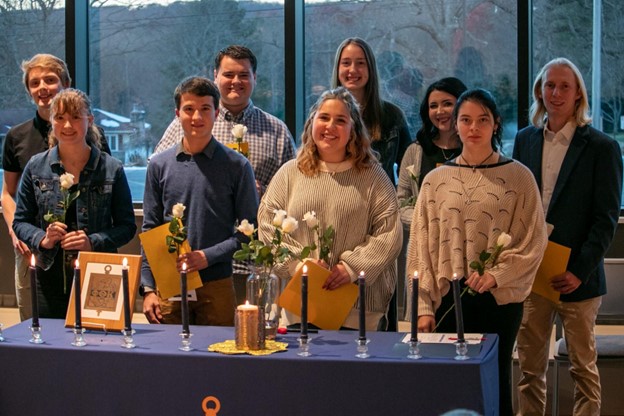
In her insightful research, "Cultivating Self-Efficacy to Improve Community College Student Success," Lynn Tincher-Ladner, Ph.D., President and CEO of Phi Theta Kappa Honor Society, delves into the critical role of self-efficacy in enhancing student success at community colleges. The paper underscores that while much attention has been on institutional strategies for improving student retention, there has been a glaring lack of focus on the student's own perspectives and beliefs regarding their ability to succeed. Tincher-Ladner argues that self-efficacy, or a student's belief in their capacity to achieve desired outcomes, is pivotal in driving the motivation and persistence necessary for success.
Lynn Tincher-Ladner explains that the concept of student success in community colleges has evolved significantly over the past decade. Initially, the focus was primarily on access—ensuring that students could enter higher education. However, with initiatives like President Obama's 2020 education agenda, the emphasis shifted towards not just access but also completion and gainful employment. This shift led to the widespread adoption of the "completion agenda," which urged community colleges to prioritize student success alongside traditional values of access, opportunity, and quality.
Despite this progress, Phi Theta Kappa’s Lynn Tincher-Ladner notes that current frameworks predominantly focus on what institutions can do to retain students, overlooking the equally important aspect of understanding how students perceive their own ability to succeed. As a result, she emphasizes the need for a more holistic approach that incorporates both institutional efforts and the cultivation of self-efficacy within students.
Drawing from Albert Bandura's Social Cognitive Theory, Lynn Tincher-Ladner explains that self-efficacy is built through four key sources: performance experiences, behavior modeling, social persuasion, and emotional and psychological states.
Lynn Tincher-Ladner presents compelling evidence of the impact of self-efficacy on student success, particularly within the Phi Theta Kappa community. A national study tracking 11,000 Phi Theta Kappa members over six years found a remarkable 91.4% success rate, defined as the sum of completion and transfer-out rates. This success is attributed to the organization's focus on building self-efficacy through recognition, co-curricular activities, and a supportive network of peers and advisors.
Lynn Tincher-Ladner also compares Phi Theta Kappa members' success rates with those of the general community college population. The data shows that PTK members consistently outperform their peers across various racial and ethnic groups, underscoring the effectiveness of self-efficacy-building strategies in promoting equity and inclusion.
Based on her findings, Lynn Tincher-Ladner offers several recommendations for community colleges to enhance student success by cultivating self-efficacy:
Phi Theta Kappa’s Lynn Tincher-Ladner concludes by emphasizing that student success is both a science and an art. While certain behaviors and actions, such as increased faculty interaction and participation in extracurricular activities, are known to improve success rates, it is the transformational experiences—those that build self-efficacy—that truly empower students to reach their full potential. By integrating these experiences into the community college environment, institutions can not only improve student retention and completion rates but also help students develop the confidence and resilience needed to succeed in their educational and career goals.
In summary, Lynn Tincher-Ladner's research highlights the critical role of self-efficacy in community college student success. By understanding and fostering this internal belief in students, community colleges can create an environment where all students, regardless of their background, can thrive and achieve their goals.